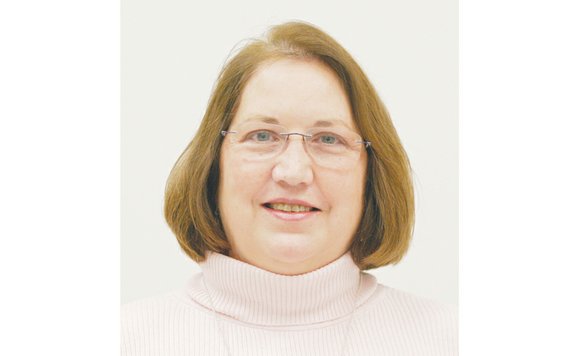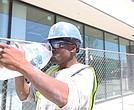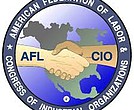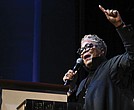City registrar to seek $1.2M for new voting machines
Jeremy M. Lazarus | 4/28/2015, 9:46 a.m.
Richmond is close to resolving its voting machine problem.
Less than two weeks after the state banned the touch-screen machines Richmond and 29 other localities have used for 10 years, the city’s Electoral Board has selected replacement equipment.
The only question is whether Richmond City Council will come up with the $1.2 million needed to pay for the new equipment and the related costs — the amount that Voter Registrar Kirk Showalter estimates will be needed in the new fiscal year beginning July 1.
In a vote on Monday night, the three-member Electoral Board led by C. Starlet Stevens voted to replace the old equipment with optical-scan machines from Election Systems & Software of Omaha, Neb.
With the new equipment, each voter will receive a stiff paper ballot printed with the names of the candidates for each office and will use a black pen to make a choice for each office. The voter will then put the completed ballot into the machine to be scanned and counted.
According to Ms. Showalter, the board “considered all the options” before selecting the winning company. State law exempts voting equipment from the open bid requirements in Virginia’s procurement law.
The decision means that Richmond will not have to borrow machines from Fairfax County for use in the June 9 primary.
Instead, under the board-approved agreement, the Registrar’s Office is to lease machines from ES&S to use in the primary elections when Richmond voters will choose Democratic nominees in two state Senate districts and two House of Delegate districts.
Ms. Showalter said she has leased 56 optical scan machines and 55 specialty machines for the disabled to meet the city’s needs for the primary.
She estimated the cost at $222,000 for the lease and associated costs, but believes she can handle that expense within her current budget, particularly by redirecting $200,000 previously earmarked to pay for new electronic poll books.
Ms. Showalter said she and the city Electoral Board “had just 10 days to make this shift” to new equipment to be ready for the June primary. After the state banned the old machines on April 14, she said the board, her staff and ES&S “worked miracles” to ensure acceptable machines would be in place for the start of absentee voting on Friday, April 24. “This has been the challenge of my career,” said Ms. Showalter, who has been Richmond’s voter registrar for 20 years.
For the 2016 fiscal year beginning July 1, the board authorized Ms. Showalter to purchase machines from ES&S based on the company’s agreement to apply the lease payment for the equipment used in the primary to the cost of the purchase, which she said would save $142,000.
“That made it a very good deal,” she said.
However, the purchase will require approval from the council, which is now preparing the budget for the 2016 fiscal year.
Ms. Showalter said she has given council a request for $1.2 million to cover all costs related to the new machines, or about $100,000 more than she initially anticipated.
That includes purchasing 80 optical scan machines and 80 machines for the disabled for the city’s 66 precincts, she said, including the central absentee precinct. The machines used in the primary would be included in that purchase.
Most of the $1.2 million involves the one-time cost for the machines, she said.
She said the good news is that the shift to the optical scan machines will cost at least $1 million less than she had expected.
In a previous forecast to council, she estimated it could cost $2.4 million to replace the touch-screen machines.







